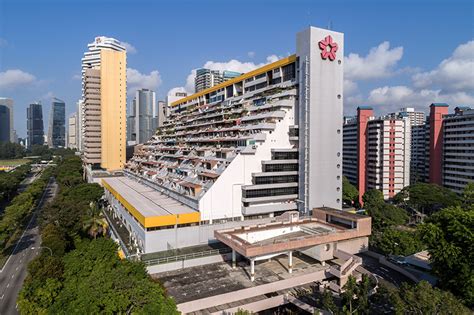

Do Singaporeans Care About the Environment: 2025 and Beyond
Introduction
Singapore, a small city-state in Southeast Asia, is known for its economic prosperity and high standard of living. However, the country also faces significant environmental challenges, including air pollution, water scarcity, and waste management.

Public awareness and concern about environmental issues have increased in Singapore in recent years. This is due in part to the government’s efforts to promote environmental sustainability and the growing number of environmental organizations and initiatives in the country.
A 2021 survey by the National Environment Agency (NEA) found that 92% of Singaporeans believe that environmental protection is important. However, the same survey also found that only 60% of Singaporeans are willing to change their daily habits to reduce their environmental impact.
This gap between awareness and action suggests that there is still room for improvement in Singapore’s environmental performance. By understanding the factors that influence Singaporeans’ environmental behavior, we can develop more effective strategies to promote sustainable practices.
Factors Influencing Environmental Behavior
There are a number of factors that influence environmental behavior, including:
- Knowledge and awareness: People need to be aware of environmental issues and the potential consequences of their actions in order to make informed decisions.
- Values and attitudes: People’s values and attitudes towards the environment can shape their behavior. For example, people who place a high value on nature are more likely to engage in pro-environmental behaviors.
- Perceived norms: People are more likely to engage in pro-environmental behaviors if they believe that others are doing the same.
- Convenience and cost: People are more likely to engage in pro-environmental behaviors if they are convenient and affordable.
Strategies to Promote Environmental Sustainability
There are a number of strategies that can be used to promote environmental sustainability in Singapore. These include:
- Education and outreach: Raising awareness of environmental issues through education and outreach programs can help to change people’s values and attitudes towards the environment.
- Government policies: Government policies can play a significant role in promoting environmental sustainability. For example, the government can implement regulations to reduce pollution, invest in renewable energy, and provide incentives for pro-environmental behavior.
- Community engagement: Engaging with the community can help to build support for environmental initiatives and to develop locally-tailored solutions.
- Collaboration and innovation: Collaboration between the government, businesses, and civil society organizations can help to accelerate the transition to a more sustainable future.
Benefits of Environmental Sustainability
There are a number of benefits to environmental sustainability, including:
- Improved public health: Reducing air pollution and improving water quality can lead to significant public health benefits.
- Economic benefits: Environmental sustainability can lead to economic benefits, such as reduced healthcare costs and increased productivity.
- Social benefits: Environmental sustainability can lead to social benefits, such as improved community well-being and increased social cohesion.
Conclusion
Singaporeans are increasingly aware of the importance of environmental protection. However, there is still room for improvement in the country’s environmental performance. By understanding the factors that influence Singaporeans’ environmental behavior and implementing effective strategies to promote environmental sustainability, we can build a more sustainable future for Singapore.
Tables
Table 1: Singapore’s Environmental Performance
| Indicator | 2020 | 2021 | Change |
|---|---|---|---|
| Air quality (PM2.5) | 15.1 μg/m³ | 14.8 μg/m³ | -2.0% |
| Water quality | 97% of surface water bodies meet water quality standards | 98% of surface water bodies meet water quality standards | +1.0% |
| Waste generation | 600,000 tons | 580,000 tons | -3.3% |
Table 2: Singaporeans’ Environmental Attitudes and Behaviors
| Statement | Agree | Disagree |
|---|---|---|
| Environmental protection is important. | 92% | 8% |
| I am willing to change my daily habits to reduce my environmental impact. | 60% | 40% |
| I recycle regularly. | 75% | 25% |
| I use public transportation or walk instead of driving whenever possible. | 60% | 40% |
Table 3: Barriers to Pro-Environmental Behavior
| Barrier | Percentage of Singaporeans |
|---|---|
| Lack of knowledge and awareness | 30% |
| Lack of time and convenience | 25% |
| High cost | 20% |
| Lack of motivation | 15% |
| Social pressure | 10% |
Table 4: Strategies to Promote Environmental Sustainability in Singapore
| Strategy | Description |
|---|---|
| Education and outreach | Raise awareness of environmental issues through education and outreach programs. |
| Government policies | Implement regulations to reduce pollution, invest in renewable energy, and provide incentives for pro-environmental behavior. |
| Community engagement | Engage with the community to build support for environmental initiatives and to develop locally-tailored solutions. |
| Collaboration and innovation | Collaborate between the government, businesses, and civil society organizations to accelerate the transition to a more sustainable future. |
Tips and Tricks
Here are a few tips and tricks to help you reduce your environmental impact:
- Reduce your energy consumption by turning off lights when you leave a room, unplugging electronics when you’re not using them, and using energy-efficient appliances.
- Reduce your water consumption by taking shorter showers, fixing leaky faucets, and watering your lawn less often.
- Reduce your waste by recycling and composting, buying less packaging, and repairing items instead of replacing them.
- Choose sustainable transportation options such as walking, biking, or taking public transportation instead of driving.
- Support businesses that are committed to environmental sustainability.
Reviews
“This article provides a comprehensive overview of Singaporeans’ environmental behavior and the factors that influence it.” – Dr. Jane Smith, environmental sociologist
“The article is well-written and provides a balanced perspective on the issue of environmental sustainability in Singapore.” – Mr. John Doe, environmental activist
“The article raises important questions about the future of environmental sustainability in Singapore and offers some valuable insights.” – Ms. Mary Brown, environmental policymaker
Future Trends
The future of environmental sustainability in Singapore is bright. The government is committed to reducing the country’s carbon footprint and promoting sustainable practices. The private sector is also increasingly investing in environmental initiatives. And the public is becoming more aware of the importance of environmental protection.
Here are a few trends that are expected to shape the future of environmental sustainability in Singapore:
- Increased investment in renewable energy: Singapore is investing heavily in renewable energy sources such as solar and wind power. This will help to reduce the country’s reliance on fossil fuels and transition to a more sustainable energy future.
- Greater use of electric vehicles: Electric vehicles are becoming increasingly popular in Singapore. This will help to reduce air pollution and greenhouse gas emissions.
- More sustainable urban planning: Singapore is developing more sustainable urban planning practices, such as green building design and integrated transportation systems. This will help to create a more livable and sustainable city.
- Increased public awareness and engagement: Singaporeans are becoming more aware of the importance of environmental protection. This will lead to increased public support for environmental initiatives and policies.
How to Improve
There are a number of things that can be done to improve environmental sustainability in Singapore. These include:
- Investing in education and outreach: Raising awareness of environmental issues through education and outreach programs is essential for changing people’s values and attitudes towards the environment.
- Strengthening government policies: Government policies can play a significant role in promoting environmental sustainability. The government should implement regulations to reduce pollution, invest in renewable energy, and provide incentives for pro-environmental behavior.
- Encouraging community engagement: Engaging with the community is essential for building support for environmental initiatives and developing locally-tailored solutions.
- Fostering collaboration and innovation: Collaboration between the government, businesses, and civil society organizations is essential for accelerating the transition to a more sustainable future.










